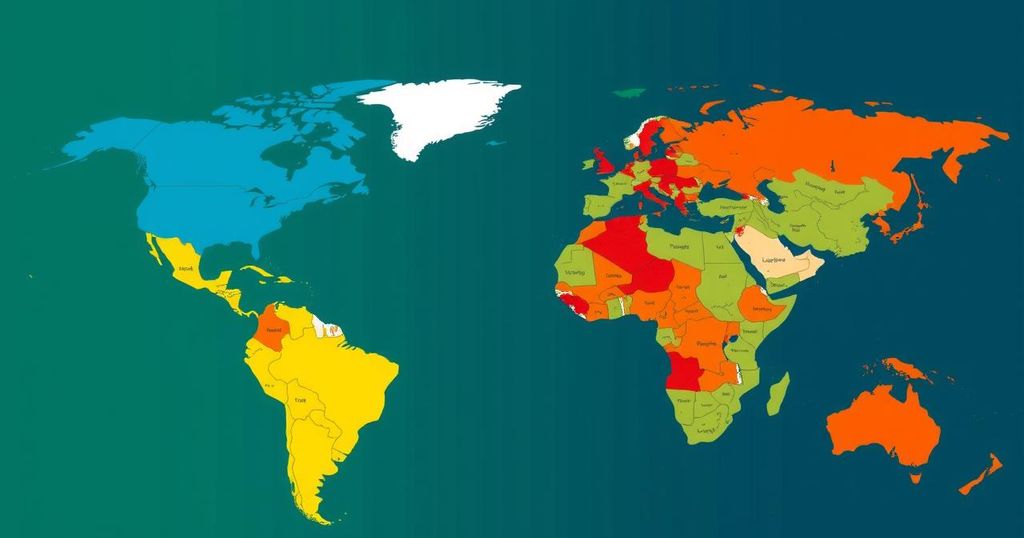Wealthy Nations Commit to Fund Climate Change Damages for Developing Countries
Wealthier nations are pledging compensation to poorer countries for damages caused by climate change, exemplified by Malawi’s Cyclone Freddy. Christopher Bingala’s story illustrates the importance of the “loss and damage” funding initiative, which has secured $720 million in pledges. Yet, experts warn that more significant contributions are crucial as climate crises worsen, with funding needs projected to reach $250 billion annually by 2030. The international community must prioritize effective financial support to avert further humanitarian issues.
In the wake of increasingly severe climate disasters, a groundbreaking funding initiative enables wealthier nations to compensate poorer countries for climate change-induced damages. The recent case in Malawi, where Cyclone Freddy devastated communities, highlights the dire need for such support. Christopher Bingala, a subsistence farmer, received a vital payment of approximately $750, allowing him to rebuild his family’s home after losing everything. This initiative, termed “loss and damage” compensation, reflects an evolving commitment among richer countries to help those most impacted by climate change despite contributing minimally to global pollution.
The funding for loss and damage has garnered pledges totaling around $720 million from affluent nations, yet climate experts caution that this amount will be grossly insufficient considering the escalating frequency and intensity of climate-related disasters. During COP29, nations are actively negotiating financial support mechanisms to ensure developing countries receive reparations, which are vital for their recovery and resilience. Prime Minister Philip Davis of the Bahamas emphasized the moral responsibility of high-emission countries to address the impacts of their activities on those less responsible for climate change.
The devastating effects of Cyclone Freddy have been felt broadly within Southern Africa, impacting thousands and displacing many families. Bingala’s subsequent struggle highlights the vulnerabilities of small-scale farmers, who often lack financial safety nets. His recovery, bolstered by the cash grant provided by the Scottish government through GiveDirectly, demonstrates a promising model for aiding individuals during such crises. The program aims to empower low-income households to invest in rebuilding their lives, a crucial step in the face of climate adversity.
Despite this initial success, the majority of the pledged funds still await distribution. Concerns linger regarding the adequacy of these financial commitments amidst a growing climate crisis, where projections indicate that loss and damage funding needs might escalate to $250 billion annually by 2030. Such funding is not only essential for recovery but also for adaptation strategies, including relocating at-risk communities.
Ultimately, as the consequences of climate change become increasingly apparent, the international community must recognize its responsibility to support vulnerable nations. Failing to do so will result in dire humanitarian consequences, potentially leading to climate refugee crises that transcend borders. As articulated by Prime Minister Davis, inaction would ultimately return to haunt the wealthier countries: “If they do nothing, they will be the worst for it.”
The topic centers around the global initiative to provide financial compensation to developing nations most adversely affected by climate change, a phenomenon that they have contributed to minimally through greenhouse gas emissions. The case of Malawi, following Cyclone Freddy in 2023, exemplifies the urgent need for a system that enables reparations to help communities recover from climate-induced disasters. The proposed loss and damage compensation aims to alleviate the financial burdens that these nations face as they respond to increasing climate-related challenges, including extreme weather events and the loss of livelihoods. This initiative is unfolding amidst international climate negotiations, where funding mechanisms are being critically assessed.
In summary, the newly established loss and damage compensation framework underscores the urgent need for wealthy nations to commit substantial financial resources to support poorer nations grappling with the realities of climate change. The case of Christopher Bingala in Malawi illustrates both the challenges faced by low-income communities and the potential for recovery when receiving timely financial assistance. However, as the projected needs for such funding escalate, it is imperative for the international community to take decisive action to ensure that these mechanisms function effectively and equitably to prevent future humanitarian crises.
Original Source: www.wrvo.org




Post Comment